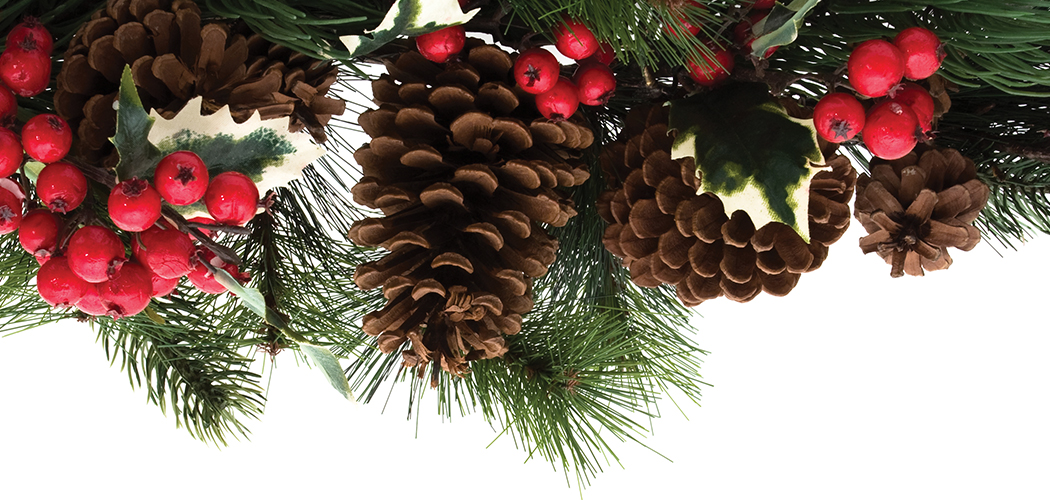[title subtitle=”words: Marla Cantrell”][/title]
As soon as Donna steps foot in the Hard Times Café she isn’t Donna anymore. Here, where she waitresses, they called her Red, because of her fiery hair that seems to always fight against the rubber band that strains to hold it in place.
Her real name is Madonna, a mistake her mother had made when she was born two months early, when she still seemed like some kind of miracle. When she left Kentucky after her mama died, she changed her name to Donna. People don’t expect near as much from a Donna.
She is shimmying out of her heavy coat when Silas Brooks comes through the rickety door that slams with a bang. He’s old and mad for plaid, and he has on a green plaid coat and red plaid hat that don’t match at all. He sits at the table near the plate-glass window, where a swoosh of silver and gold tinsel dances when the central heat kicks on, and taps his cane on the cracked linoleum floor.
“Happy Christmas,” Silas says, and Donna answers, “Happy Christmas, Silas. You got family coming in?”
“Nah, Red, just me and the Mrs. The two oldest boys I ain’t seen in going on forty years, I guess. And the youngest one, now he’s the one that’s got the diagnosis from the fancy doctors in Little Rock.” Silas hesitates, seems to consider how much more to say, then adds, “Well, anyhow, all them white-coats ended up blaming me and his mama for everything.” Silas shrugs, touches his Adam’s apple. “Must be twenty-five years since we seen him.” Silas raises his free hand way up high. “He’s yay-high and two hundred sixty pounds and mean sometimes.” He shakes his head. “I’m too old, Red, way too old.”
Donna pats him on his boney back, and then Silas says, “I didn’t mean to go on like that,” and she sees that his eyes are damp.
In the back where everything smells like fried onions and bread baking, she picks up the phone, calls Dalton, says, “We still on for tonight?” And when he stalls, she says, “Dang it, Dalton, it’s Christmas Eve!” And he reminds her of his obligations, of the kid he has in another town, and the mama of that kid who doesn’t make him pay child support if he does the right thing, and the right thing on Christmas Eve is to go over there and put together the kid’s bike.
“I’ll try to make it, Donna, I really will,” he finally says, “but I can’t make no promises.”
When Silas leaves, three truckers come in and sit at the bar on the blue bar stools. They hook their cowboy boots on the brass bar that runs right where their feet reach, and order milkshakes and meatloaf and coffee, and they whistle when Donna walks away. “Bring us a extra order of mistletoe, bring us a little sugar, Sugar,” they tease, and she shakes her head without looking back. She’s clearing Silas’ table when she sees a package wrapped in Rudolph paper where his plate had been. Donna lifts it up, checks out the shaky handwriting on the tag, and see’s her name, “Red.” Inside is a Santa hat, the kind you get from the dollar store, but Silas, or maybe Mrs. Silas, has glued little bells all around the hat’s edge. Donna adjusts her long ponytail, pulls on the cap, touches the fuzzy pom-pom that will bob against her temple when she walks.
When Donna crosses the floor, she is a tambourine. The hat lifts her spirits, and she goes to the juke box, puts in a quarter, and plays “Jingle Bell Rock.” She is shaking her head to the beat when this new guy comes in. She sees him from the corner of her eye. He is wearing a Santa suit, but no white hair or beard. He is smiling big as Texas.
She has always had a thing for tall men, for big guys who don’t seem to know what to do with all that vertical distance, who seem to be in a perpetual hunch because of it. When he stalls there by the picture of Bill Clinton when he was governor of Arkansas, she goes to him, and leads him to a booth in the center of the room.
“Nice hat,” she says, and then touches her own cap, and the guy blooms with color.
“You one of them store Santas?” she asks.
“Nah,” he says, and slips off the hat. “Just a family Santa. Over in Tisdale. Got a passel of nieces and nephews.” He pats his tight belly. “Thought I should fatten up a little before I got there.”
“Kids come in, see you without the beard, they’ll get confused.”
“Never thought of that.”
“You could slip off the jacket, throw ’em off the scent.”
So he does, strips down to his T-shirt and red velvet pants.
When Donna brings him his food, she slides onto the bench opposite him. “Needed to get off my feet,” she says, and he sits up a little straighter.
His name is Cletus, but everybody in this part of Arkansas calls him Hambone. It’s one of the reasons he moved, he tells her. “Hambone,” he says, “who thought that would be a decent nickname for a kid?”
“My name’s Madonna,” she says. “I go by Donna, though. Less pressure. Madonnas are saints, or so I’ve been told.” She looks around the Hard Times, at the chipped tables, the rows and rows of red plastic glasses. “But Donnas are just regular people trying to get by.”
Cletus listens to her, a french fry caught between his two fingers. When he doesn’t say anything more, she says, “I never saw a man young as you wear a Santa outfit.”
“It’s my daddy’s.”
“Why isn’t he wearing it?”
“He’s gone to the grave.” Cletus pauses, eats the fry, rubs the knee of the velvet pants. “In March.”
“Must hurt,” Donna says, and she watches Cletus cut his eyes away, hears him take a deep breath, sees him dig his fingernails into the palm of his hand.
“I don’t much want to be Santa.” Cletus shrugs. “But my daddy left me the suit, and it felt like a sign.”
Donna wants to reach across the table and touch Cletus’ hand, to tell him it will get better, but she knows his grief is too new for him to believe it. Instead she says, “I met Santa once. Mama was working Christmas Eve, at a rest home where she washed sheets and mopped floors. I was nine. Alone. Miserable. I heard bells, just like they say you do, and when I walked out of my room, there he was, his back to me, his red suit sparkling. I stood in the hallway transfixed. And then he just vanished. I swear to God,” she says, and goes quiet for a second. “I don’t tell that story to many people. People’d think I’m crazy.”
“I got an aunt who saw a leprechaun. Right after a big rain washed out the road to her house.”
“You’re joshing me.”
“No, she really did.”
“Life’s a mystical thing,” Donna says, and she’s thinking about Silas and his hard sons. The last time he came in he was telling her about Winnie the Pooh, the real-life Winnie the Pooh, bought for twenty dollars from a trapper in Canada by a young soldier headed to World War I. He said the soldier trained the little bear cub to stand at attention and sit in his lap, and told how the soldier near about broke apart when he had to leave the bear behind. He’d taken her all the way to England on the ship that carried him over. Winnie ended up at the London Zoo, where they’d let kids ride on her back like she was a pony. “The soldier always thought he’d get Winnie back,” Silas had said, and his voice shook.
Donna bites the inside of her lip. She thinks about the moment the soldier must have turned back, must have thought twice about leaving Winnie. But war is war and a bear is not a soldier and love will rip you to pieces if you’re not careful, and who is careful? Who is careful enough? is what Donna’s thinking, although she doesn’t know how to say this without running Cletus off.
“You got plans tonight?” Cletus asks, and he blushes again, and it throws Donna back into the here and now.
Donna hesitates. “There’s a guy said he might stop by.” She looks at her hands. “He says a lot of things he never does.”
“Then come with me. Meet my crazy family. Help me play Santa.”
Donna hasn’t met a soul connected to Dalton, not the kid in the next town, not the mama of the kid, not one sorry friend.
There was a time when having a man stop by once in a while was enough. In those first years after her mama died it certainly was. She liked the surprise of it. A knock at the door late at night. A rap on her window. But lately she’d been thinking that there is a mountain separating those that stop by and those that stay on.
Donna looks full-on at Cletus. His brown hair is parted almost in the middle and tucked behind his ears. He has arms like you see in wrestling matches. His mouth is beautiful.
A middle-aged couple comes through the door, bringing the icy air with them. Donna stands up. “Y’all sit wherever you want,” she says, and they head for the counter. The pie carousel is spinning: pecan, cherry, coconut cream. Behind the cash register are souvenir plates from all fifty states. The owner likes to travel, just not beyond the U.S. of A.
Donna heads for the juke box. It costs a quarter to play any song you want. Donna punches number twenty-five and Conway Twitty starts singing “Hello Darlin’.”
“I believe it’s going to be a happy Christmas,” Donna says, to Cletus and to these new folks who’ve stepped inside the Hard Times Café just in time to see the beginning of a great love story, although nobody knows it just yet, least of all a guy named Dalton who is at this moment arriving at his kid’s mama’s house, who is just now thinking about Donna and how he’ll stop by the drugstore on the way over tomorrow—he couldn’t possibly make it to her house tonight—and how he’ll pick up some chocolate-covered cherries and work on his apology on the drive to her place. He’ll say, “Baby Cakes, it’s Christmas. Nobody can be mad on Christmas.”
Turns out he’s wrong. Turns out you can be mad on Christmas Day, but Dalton has at least eight more hours before he finds this to be the truest lesson he’ll ever learn, and just possibly the hardest.




